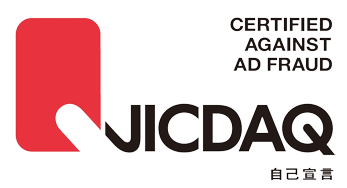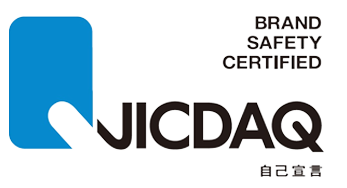Here's Why You Should Care About Google Ads Keyword Match Types
.png)
In this article, we'll dive into the world of Google Ads match types. From understanding the different types of matches to the benefits they offer, we'll guide you through everything you need to know to make the most of your advertising efforts on Google Ads.
The Importance of Keyword Match Types in PPC
Pay-per-click (PPC) advertising is a cornerstone of digital marketing, where advertisers pay a fee each time one of their ads is clicked. At the heart of PPC lies the concept of keywords – terms or phrases that users enter into search engines. But not all keywords are equal, nor are the ways in which they can trigger your ads. This is where keyword match types come into play.
Keyword match types determine the degree of match between the user's search query and your keyword, which in turn affects when and how your ads are displayed. They are critical because they directly influence your ad's visibility, the relevance of traffic, and ultimately, the efficiency of your advertising budget.
Definition of Keyword Match Types
Keyword match types are parameters set within Google Ads that help control how closely the keyword needs to match a user's search query for the ad to be considered for the auction. Google offers several match types: Broad, Phrase, Exact, and Negative. Each has its own rules for triggering ads and can be used strategically based on campaign goals.
Broad Match Keywords
Broad match is the default match type in Google Ads and the one that reaches the widest audience. When you use broad match, your ad is eligible to appear whenever a user's search query includes any word in your key phrase, in any order, including synonyms and related searches.
Pros and cons of broad match in campaign strategy:
Pros:
- Maximum Exposure: Broad match keywords maximize your potential reach, showing your ads to a broad audience.
- Less Keyword Research: They require less exhaustive keyword lists, as Google automatically includes a wide range of variations.
Cons:
- Irrelevant Traffic: They can lead to your ads being shown for unrelated searches, which can decrease your click-through rate (CTR) and waste your budget.
- Lower Conversion Rates: The broad nature of this match type might attract clicks from users who are not looking for what you're offering, potentially leading to lower conversion rates.
Optimizing Broad Match for Maximum Reach
To make the most of broad match keywords, it's essential to balance reach with relevance. Here's how:
- Use Negative Keywords: Regularly update your list of negative keywords to filter out unwanted traffic.
- Monitor Search Terms Reports: Keep an eye on the search terms triggering your ads and refine your keyword list accordingly.
- Focus on Relevance: Align broad match keywords with your ad copy and landing pages to improve the chances of attracting qualified traffic.
Phrase Match Keywords
Phrase match has undergone significant changes over the years. Previously, it allowed your ad to show only when a user's search included the exact phrase, in the same order, with no words in between. However, Google has since updated phrase match to include the meanings of keywords, providing more flexibility while still offering a level of control that broad match does not.
Best Practices for Phrase Match
To effectively use phrase match in your campaigns, consider the following:
- Keyword Research: Identify common phrases your target audience uses that are closely related to your products or services.
- Match with Intent: Use phrase match to align with the user's intent, ensuring your ads appear for searches that are more likely to convert.
- Performance Tracking: Utilize analytics to track the performance of phrase match keywords and adjust bids accordingly.
Exact Match Keywords
Exact match is the most targeted option available. It allows your ad to show when a user's search matches your keyword exactly or displays a very close variant of it. This match type gives you the most control over who sees your ad, ensuring that your ads are highly relevant to the user's search.
Balancing Reach and Relevance with Exact Match
While exact match keywords offer precision, they also come with the challenge of potentially being too restrictive. To strike the right balance:
- Expand with Variants: Take advantage of close variants to expand your reach without sacrificing relevance.
- Use with Other Match Types: Combine exact match with other match types to cover a broader range of search intents.
- Refine Over Time: Continuously refine your exact match keywords based on performance data to ensure they are driving the desired results.
Negative Keyword Match Types
Negative keywords are a type of keyword match that prevent your ads from being triggered by certain words or phrases, helping to filter out irrelevant traffic. They are crucial for improving campaign focus and reducing wasted spend.
Implementing Negative Keywords
Implementing negative keywords effectively requires a strategic approach:
- Identify Irrelevant Terms: Use search term reports to identify irrelevant queries that are triggering your ads.
- Regular Updates: Continuously update your negative keyword list to reflect new search patterns and trends.
- Match Type Selection: Choose the appropriate negative match type (broad, phrase, or exact) to effectively filter out unwanted traffic.
Advanced Strategies for Keyword Match Types
In the realm of Google Ads, mastery is not just about understanding each keyword match type; it's about weaving them together into a cohesive strategy that aligns with your campaign goals. The art of combining broad, phrase, and exact match types can create a symphony of targeted traffic and qualified leads.
Combining Different Match Types in a Single Campaign
Imagine broad match as your discovery tool, casting a wide net to uncover the vast array of terms your audience uses. It's your exploratory tool, but it needs refinement. Enter phrase match, the balancing act that starts to bring focus by honing in on search terms that include your exact phrase, ensuring relevance. Finally, exact match is your sniper—precise and targeted, it ensures your ads appear for searches that match your keyword perfectly or are very close variations.
Here's how a combination might play out in a real-world scenario:
- A fashion retailer uses broad match to identify trending styles and emerging fashion terms.
- They employ phrase match to target specific product categories like "women's summer dresses."
- Exact match is reserved for high-intent and brand-specific searches such as "BrandX leather handbag."
Smart Bidding and Keyword Match Types
Smart bidding and keyword match types are a match made in digital marketing heaven. Smart bidding strategies like Target CPA and ROAS use machine learning to optimize your bids in real-time for each auction. The success of these strategies can be significantly influenced by the keyword match types you choose.
For instance, broad match can be a powerful ally for smart bidding, allowing Google's algorithms to seek out and bid on a wide array of searches. This can lead to discovering profitable niches that manual bidding might miss. On the other hand, phrase and exact match types can be used to refine smart bidding's focus, directing your budget towards searches that are more likely to convert and potentially improving your ROI.
Analyzing and Adjusting Match Types
The landscape of PPC is ever-changing, and so should be your use of keyword match types. Regular analysis and adjustments are not just recommended; they're necessary for the health of your campaigns.
Monitoring Keyword Performance
To keep your finger on the pulse of your campaign's health, you'll need to become intimate with Google Ads reports. These reports will show you how different match types are performing in terms of CTR, conversion rate, and cost per conversion. When you notice a mismatch between performance and your goals, it's time to pivot. This might mean shifting from broad to phrase match or tightening up your exact match keywords.
A/B Testing with Match Types
A/B testing is your scientific method for PPC success. By comparing two versions of your campaign—one with your current match type and one with a potential new strategy—you can see which performs better and make data-driven decisions. This methodical approach removes guesswork and allows you to optimize your campaigns based on concrete evidence.
The Future of Keyword Match Types
As we look to the horizon of PPC, it's clear that keyword match types will continue to evolve. With advancements in AI and machine learning, we can expect even more nuanced and intelligent match options. Staying abreast of these changes is not just about keeping up; it's about staying ahead.
The best way to future-proof your PPC strategy is through continuous education and adaptability. Follow the Spider AF blog, engage with PPC communities, and never stop testing and learning. The digital marketing landscape is a dynamic one, and your ability to adapt to its changes will define your success.
Frequently Asked Questions about Keyword Match Type
What is the difference between broad match keyword and exact match keyword in a Google Ads campaign?
A broad match keyword allows your ad to show on searches that include any word in your keyword, in any order, and can also show on searches with a similar intent or synonyms. An exact match keyword, on the other hand, restricts your ads to show only when the exact same order of the words in your keyword is used in the search, or very close variations of it.
How do negative phrase match keywords and negative exact match improve the relevance of traffic to my landing page?
Negative phrase match keywords prevent your ads from showing on searches with the exact phrase you specify, eliminating irrelevant variations. Negative exact match is more restrictive; it filters out searches that are identical to the unwanted keyword phrase, ensuring only the most relevant visitors reach your landing page.
How can I use search query reports to find negative broad match keywords for my Google ads campaign?
Search query reports show you what search queries users typed in that triggered your ads. By analyzing these reports, you can identify irrelevant terms and add them as negative broad match keywords to your google ads campaign, which helps to prevent your ad from showing on broadly related but irrelevant searches.
When conducting keyword research, how can I decide which match type to use for target keywords?
When conducting keyword research, consider the search intent and relevance to your product or service. If you're targeting very specific search queries, use an exact match type for your target keywords to narrow down the audience. For a wider reach, consider a broad match type or a phrase match keyword to capture variations of the search terms with the same intent.
Can you explain the use of square brackets and "quotation marks" in setting up exact keywords and phrase match keywords?
In Google Ads, square brackets are used to denote exact keywords, meaning your ads will only show when the exact search term is used in the search. "Quotation marks" are used for phrase match keywords, signaling that your ad should appear when the keyword phrase is used in the exact order, but possibly with additional words before or after.
Why is it important to add negative keywords to my Google ads campaigns?
It's crucial to add negative keywords to Google ads campaigns to prevent your ads from appearing in response to irrelevant search queries. This helps you save budget by reducing wasted clicks and improves campaign performance by focusing on more relevant search terms.
How often should I review my search campaign's performance to decide on adding negative keywords or adjusting match types?
It's recommended to review your search campaign performance regularly, at least once a month. This allows you to identify opportunities for adding negative keywords and adjusting match types based on changes in search volume or the performance of your keyword phrase.
In a Google ads account, how does broad keyword match type work with smart bidding to discover new keyword ideas?
In a Google ads account, using broad keyword match type with smart bidding allows the algorithm to automatically adjust bids for a wide range of search queries, which can uncover new keyword ideas and variations that you might not have considered, potentially leading to new areas of opportunity and growth in your campaigns.



















